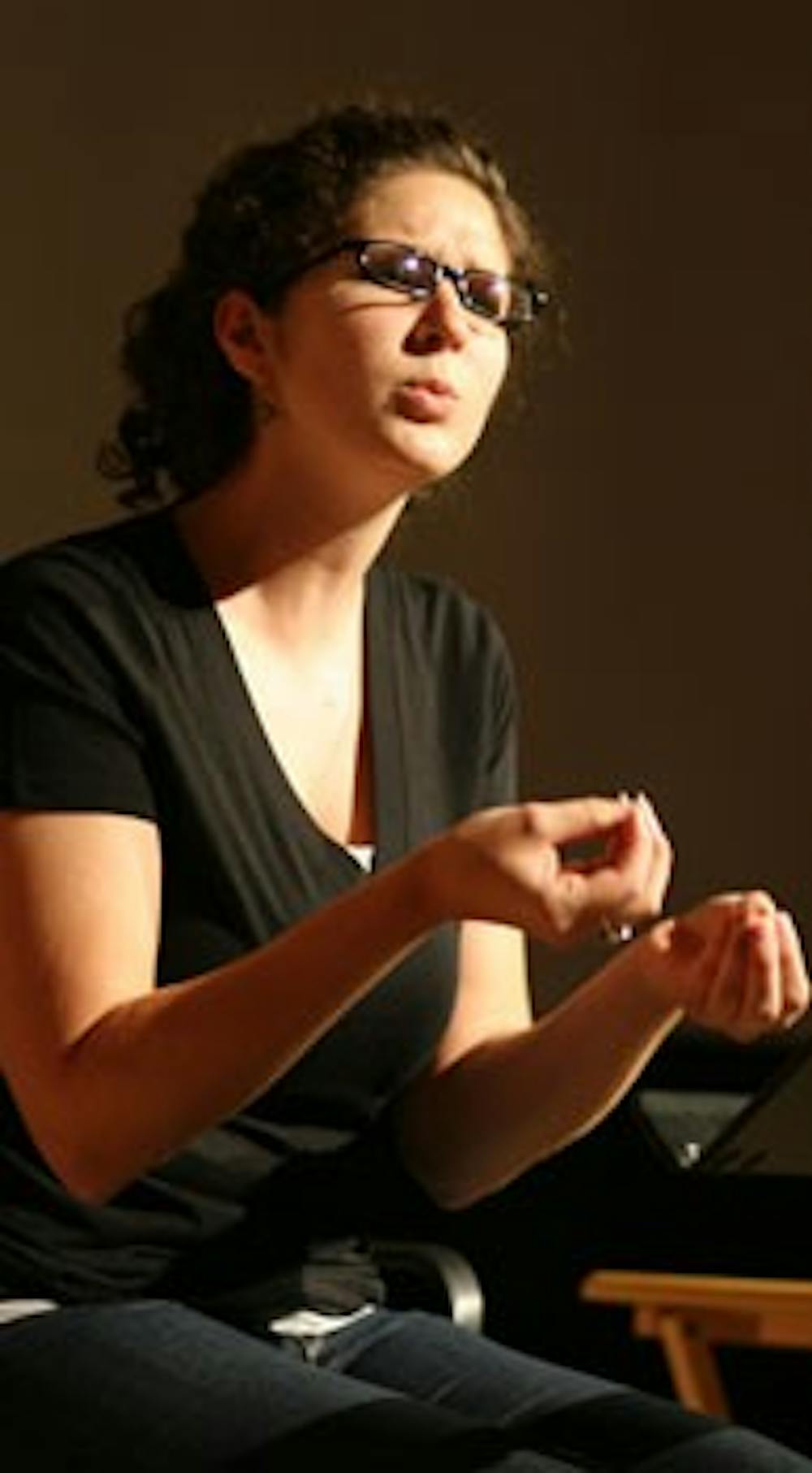UNC alumna Carina Cortese never expected to discover family secrets in an Argentine history book.
But during her sophomore year when she studied abroad in Argentina, Cortese discovered that the brutal murder of her mother’s uncle was made famous in a popular history book.
Yet she had never heard the story.
She turned this experience into an autobiographical performance titled “After-Images of the Disappeared.”
This piece opens the Process Series this fall, with a performance at 8 p.m. tonight and Saturday in Gerrard Hall.
The Process Series presents new works free of charge and develops the pieces further based on audience feedback.
There are five additional works in the Process Series, and they will be presented throughout the year.
Cortese’s great-uncle was abducted during Argentina’s “Dirty War,” during which people disappeared if they disagreed with the controlling military dictatorship.
Her family had made hints but never directly spoke about the conflict.
“At the beginning, it was more shock. We never talked about it,” Cortese said.
After a second trip to Argentina with the help of the Institute for the Study of the Americas Halpern Award and a senior honors thesis research grant, Cortese wrote the play as her honors thesis for the dramatic art department.
She received the highest honors and the Federico G. Gil Award for best thesis on a Latin American topic when she graduated in May 2009.
“This project just took on a life of its own. I didn’t know where it was going to go, and it morphed out of this need to understand my family,” Cortese said.
“It is a very personal journey, but showing that and experiencing that gives people a greater awareness of what happened in Argentina.”
Joseph Megel, director of the Process Series, was essential in helping Cortese develop her work.
“For me it’s like being the midwife of something really exciting and special,” he said. “I feel sort of blessed for getting to go on the journey and helping to shape it so it has a future that will want to be seen by others.”
Cortese’s performance pulls the audience close to the tragedy, and the impact of the work becomes apparent.
Because this story revolves around the actress’s actual family, the horror of the “Dirty War” transcends the historical context and is more relevant for viewers.
“Carina really discovered an important history, but also her very personal family history,” Megel said.
After learning her family’s stories, Cortese said she was in disbelief of the atrocities committed on them and by them.
“My mother was there at shoot-outs. She was so involved,” Cortese said. “To be able to put faces to those events changed them so drastically.”
The show is not meant as a history lesson but as an experience to which everyone can relate.
“It’s not unique to my family, or Argentina; it happens all the time across the world,” she said.
Contact the Arts Editor artsdesk@unc.edu.
'After-Images of the Disappeared' to cover family tragedy
UNC graduate ?nds her story

Carina Cortese, a recent UNC graduate, will be kicking off this year’s Process Series with “After-Images of the Disappeared.”



